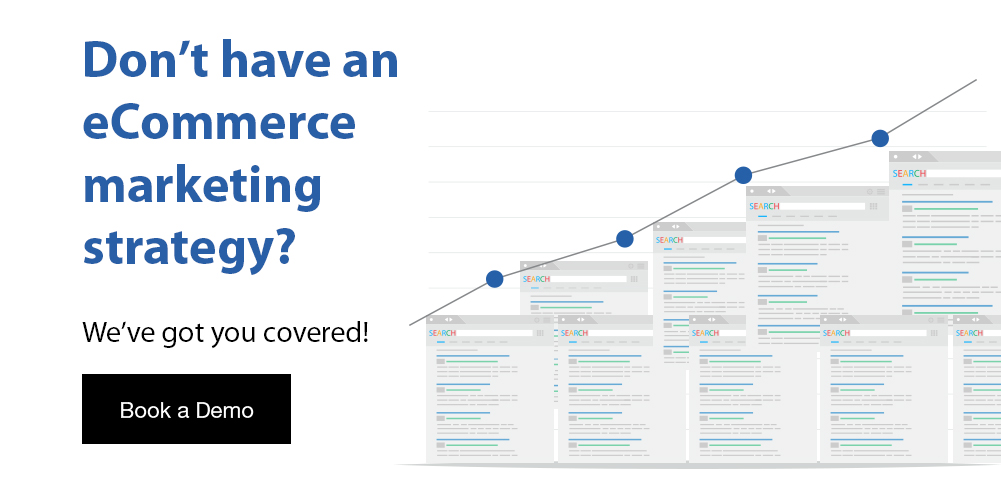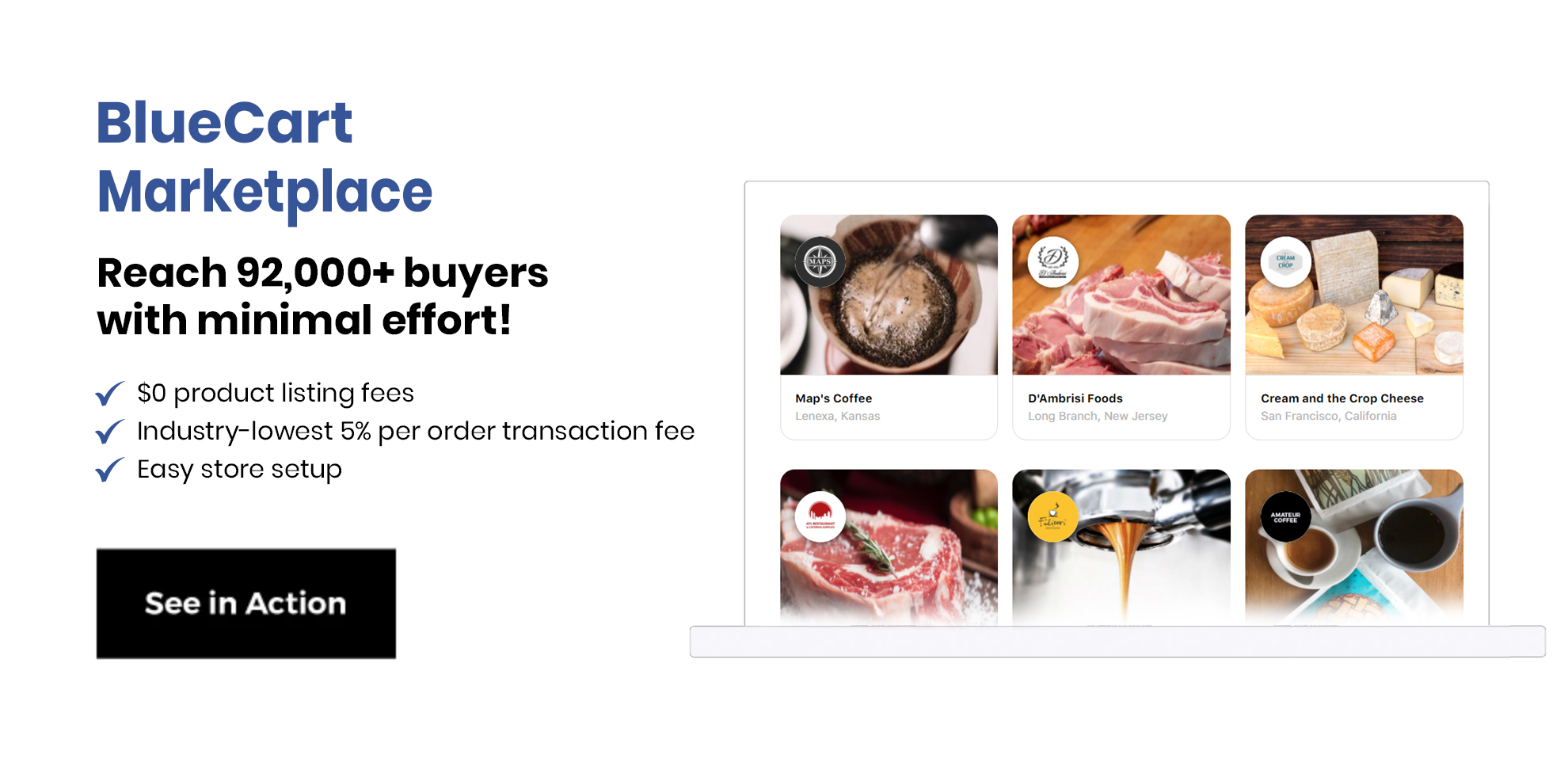eCommerce makes up the majority of today's sales around the world. By merging convenience and ease of access it's no wonder why an eCommerce website builder has become so popular. With the simple tap of a button, you can easily purchase what you're looking for without ever having to leave your bed. Even better, with popular platforms like Amazon, you can get your favorite items in less than a week!
Knowing what is the difference between eCommerce and eBusiness is essential to start growing at an exponential rate. While this may seem scary it’s actually a good thing, especially if you’re a new competitor completing your eCommerce competitor analysis.
In order to reach this success yourself, you’ll need to utilize two platforms known as eCommerce and eBusiness. While most people use these two terms interchangeably, rightfully so, there are some key differences between the two that are important to understand.
Keep reading to learn more about the two and how you can use them successfully within your own business.

What is E-Commerce?
eCommerce is a process where products and services are bought on the internet. There are many types of eCommerce out there. Figuring out what is the difference between eCommerce and eBusiness comes down to knowing who is being sold to and doing the selling.
The eCommerce definition includes business to business, business to customer, consumer to consumer, and consumer to business. However, most businesses tend to operate in multiple categories.
- Business to business eCommerce (B2B eCommerce) includes any transactions that occur between two businesses. These transactions include exchanges of products, services, or both.
- Business to consumer eCommerce (B2C) is the most common type you’ll see. The B2C meaning refers to transactions made between a customer and a business. Examples include Walmart, Amazon, and Netflix. Out of all the business models, B2C is the least complex.
- Next is consumer to consumer or C2C. This is an eCommerce model dealing with any electronic transactions between two customers. All C2C transactions are completed through a marketplace online. Some of the most common include eBay, Craigslist, and Etsy. It is important to remember that in this type of eCommerce both parties are consumers, not a business. C2C transactions are always facilitated through a third-party platform.
- Finally, there is the consumer-to-business (C2B) model. In this model, the customer is the entity providing services or products to a business. The goal of the C2B business model is value generation. Through means such as customer feedback and crowdsourced ideas, C2B models are able to profit from their customers. In return, the customers benefit from discounted products, flexibility, and incentives.
With the rise in social media usage, C2B models have grown tremendously. If you’re looking for the perfect example of C2B eCommerce, just open up Instagram and let an influencer do the talking.
What is eBusiness?
eBusiness is similar to eCommerce in that it utilizes the internet to conduct business. However, eBusiness exists on a much larger scale to include overlooked business practices. In order to run a successful business, you’ll need to understand what goes on behind the scenes. By adjusting your focus to implementing trusted eCommerce content marketing standards and procedures, overall efficiency, and attention to detail you’ve already put the right foot forward. Maintaining positive eCommerce customer service is another key factor in eBusiness that contributes to success.
An eBusiness will conduct sales through two platforms: online storefronts and online marketplaces. Which platform a business decides to utilize is completely up to them. Although, it's important to consider your target audience and type of business when deciding. There are benefits to both, but one might be a better fit.
Online marketplaces are websites that facilitate buying and selling between businesses and customers. You’ll be familiar with the common marketplaces like Etsy and Amazon. Upwork is another popular platform that matches writers and developers with talent seekers.
On the other hand online stores conduct business through an eCommerce website builder. Typically small business owners benefit the most from this platform. Online stores allow for more user flexibility and full customization. Therefore, small businesses are better able to fulfill their needs and keep customers happy. Popular online website builders include Wix, Shopify, WordPress, and Squarespace.
Overall, the right decision for you will entirely depend on your business. As you can see, eCommerce is still a large part of eBusiness. Knowing how the two interact and differ from the other will only help you become a better business owner.
Advantages of eCommerce and eBusiness
eCommerce and eBusiness have permanently changed the way we shop. Notably, customers have been the ones said to benefit most. However, there are many benefits that business owners will love as well. Yes, customer satisfaction is the main goal of any business, but that doesn't mean business owners can’t look forward to the many perks of owning an eBusiness.
Here are a few advantages that come with eBusiness/Commerce:
- Reduced Financial Costs: One of the main differences between a physical store and an online business is location. When you operate from a physical store you’re responsible for costs such as electricity, rent, phone bills, and even furniture. However, you can eliminate those costs by taking your business online. How much better would it be to work from the comfort of your own home? More than this, eCommerce website cost is normally much more affordable than monthly rent for an office.
- Flexible Business Hours: The internet does not operate on a 9-5 schedule. So, neither do you! Customers can enjoy the flexibility of shopping whenever and wherever they want! More than this, you’ll be able to make money 24/7. Who would’ve thought there’d be a way you could sleep and get paid!
- Location: Many brick and mortar shops are limited to a single location. This limits their potential by a lot. Thankfully, eBusinesses do not share the same issue. Customers can shop from an entirely different country thanks to the internet. Plus, with technology like cell phones, it's easier than ever to make a purchase.
- Growth: An important part of any business is being able to measure growth. In doing so you can measure trends-like direct to consumer trends-and potential areas of improvement. Lucky, there are so many ecommerce tools out there that make tracking data that much easier. Keeping track of data like this is notably a much harder task for a physical business. So take some of the extra work off your back and go digital!
Disadvantages of eCommerce and eBusiness
Another crucial part of knowing the difference between eCommerce and eBusiness is acknowledging the disadvantages. Starting a business, even an online one, is not without difficulty. So, it’s better to evaluate potential setbacks and develop a plan of action.
Below you will find the most common disadvantages of eCommerce and eBusiness. We hope it’ll help you make an informed decision.
- Security
Today, there’s a slim chance that you won’t be able to find what you’re looking for online. However, the use of online portals invites unwelcome visitors in the form of hackers. While not all online shops suffer from cyberattacks it doesn’t mean they never will.
More than this, ignoring the issue means you won’t be prepared in the event that a cyberattack does occur.
Knowingly, it’s important to stay vigilant in order to protect yourself. There are various measures you can implement to keep yourself protected.
- Site Crashes
eCommerce websites fully depend on a stable internet connection. However, you can never 100% guarantee you’ll always have a stable connection. Site crashes, even small ones, have the ability to take even the largest eCommerce business down in seconds.
Though you can't always prevent a crash, you can be proactive in making sure you reduce the chances. This is done by purchasing high-quality internet loading packages with excellent customer service. Doing so ensures that your website is one step ahead of the competition in the event a crash occurs.
- Late Delivery
Another fairly common disadvantage of eCommerce and eBusiness is the potential for late deliveries. Regardless of the precautions, you take to ship items out on time, you can't control what happens once the items leave your warehouse.
Ultimately, the customers always tend to hang onto the promised delivery time regardless of what’s happened during the delivery. So, it’s best to communicate with your customers as much as possible to ease their minds.
- Legal Issues
As with any business, legal issues are always a concern. Once you move your business online, the possibility of issues arising is ten-fold. In order to protect the rights of both sellers and buyers, numerous cyber laws have been put in place.
Before you launch your business be sure to review your local laws and regulations as well as cyber rules and regulations. Many business owners tend to forget one or the other and it can really get you in a pickle if you’re not thorough.

Don’t delay--get started with eCommerce today!
All in all, eCommerce and eBusiness are both important aspects to business owners and customers. Now that you know what is the difference between eCommerce and eBusiness you can put your knowledge into action. Starting with choosing an eCommerce platform like BlueCart. BlueCart’s types of marketplaces offer all-in-one solutions to common issues so you can better serve your customers. Book a free demo today and see for yourself how easy the process can be.
There’s a whole world of customers out there looking for what you have to offer. So why don't you meet them where they’re at? If you’re willing to put in the time and effort to craft your marketplace business model and obtain your eCommerce business license there’s no telling what heights you’ll be able to reach.